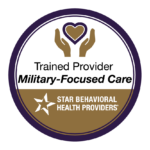
What, maybe it doesn’t matter…
Adjustment disorder, mood disorder or does it matter when it starts with a new medical diagnosis…
It is normal to feel sad, anxious and angry about a new medical diagnosis. Individuals often come into my office minimizing their situation and symptoms because it’s normal to feel upset after learning of a major medical diagnosis. As time goes on an individual who attempts to deal with this adjustment alone or worse doesn’t deal with it all, will come to my office with any of these questions “Am I going crazy?”, “Shouldn’t I be over it?”, or “What is wrong with me?” These questions are predictable, normal and the answers to these questions are always “No, no, and nothing.”
The reality is there is a precise and official diagnosis which is based on clinical diagnostic criteria, but does it really matter? I might say “no” because the adjustment to a medical condition has to be addressed and I often help people address this before we move onto any other issues.
What is an Adjustment Disorder and why is it important to diagnose when coping with medical conditions?
Adjustment disorder is a cluster of symptoms that are observed within 3 months of an precipitant (Maybe a medical diagnosis) and the symptoms last less than 6 months from the time of diagnosis. The symptoms of an adjustment disorder are the same symptoms used to diagnose a mood disorder but the precipitant (what) and time frame become the diagnostic determinants. The long and short, these symptoms make it harder to function in everyday life, they are present because of the medical condition and they make it hard to address medical needs or create the supportive changes needed to address the medical condition or maybe life in general.

There are 5 types of adjustment disorder and here they are:
- Adjustment disorder with depressed mood (I am sad for what I am losing: my health, my physical function, foods, hobbies, and/or roles I value).
- Adjustment disorder with anxiety (I am scared for the future, I can’t…, I won’t be able to…, what if I…).
- Adjustment disorder with mixed anxiety and depressed mood (I am sad and scared, things will never be the same and this isn’t the future I saw for myself.)
- Adjustment disorder with disturbance of conduct (I am angry, I am out of control, I am not doing anything, I am doing everything).
Why the diagnosis might not matter much…
For the record I use the criteria as indicated by the DSM-V but the reality is the treatment is much the same and this will always be addressed with my clients.
Mood disorders and Chronic medical conditions are common and often underdiagnosed. It is normal to feel sad or discouraged after an acute health condition like a heart attack, stroke or a cancer diagnosis. It is also normal to feel sad and grieve a loss of self when diagnosed with a chronic medical condition like diabetes, chronic kidney disease, lupus, multiple sclerosis, parkinson’s or chronic pain. The physical and psychological changes needed to address medical illness can trigger any of the symptoms of adjustment disorders, anxiety and depression. The reality is if an adjustment disorder isn’t diagnosed or addressed in the first 6 months then a person is diagnosed with a mood disorder (primarily Depression or Anxiety). I will argue that the adjustment to the medical diagnosis remains the focus of clinical attention. This takes us back to “Does the diagnosis really matter?”
Living with a chronic illness challenges an individual’s sense of self because so many aspects of life change with a new medical diagnosis from physical abilities, to daily habits, and at times even family traditions. It’s normal to feel grief, sadness, fear, ambivalence, and anger. When these problems are framed and the focus becomes adjustment an individual can work through the stuck points, grieve and build acceptance so they can honor the impact the medical condition has on their life and feel more prepared for the changes in their condition that happen over time.
It is important to address the mental health symptoms and not accept or dismiss them as a normal part of having a chronic illness or acute medical condition. Effective treatment for an Adjustment disorder or Mood Disorders is available and can help improve your life after being diagnosed with a medical condition.




